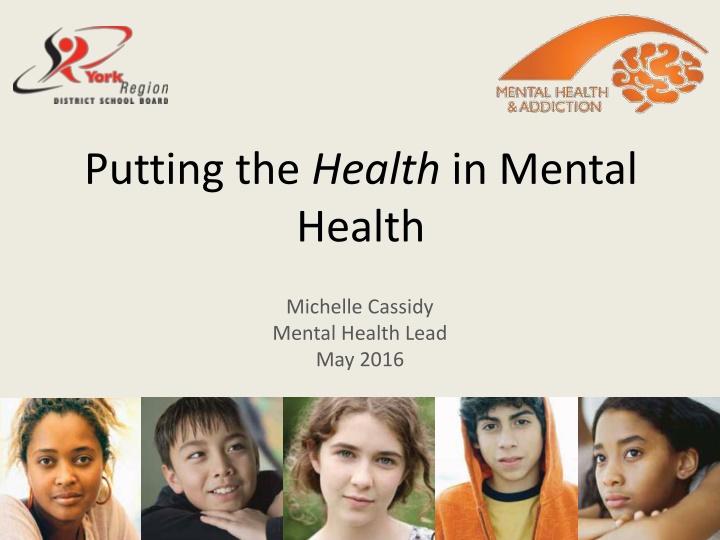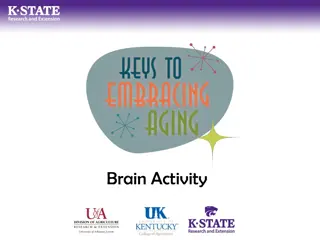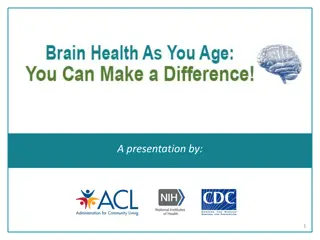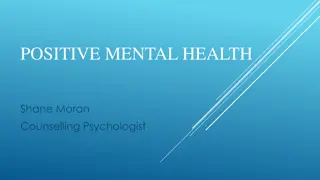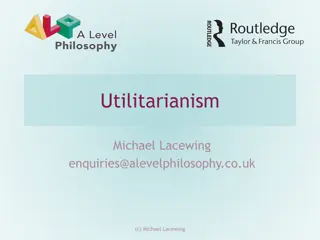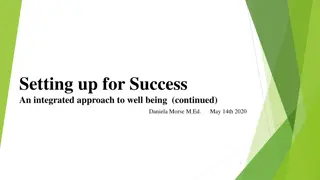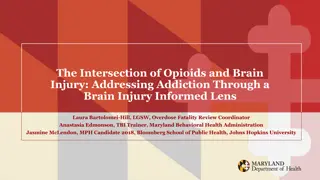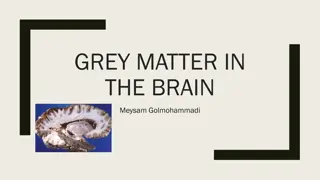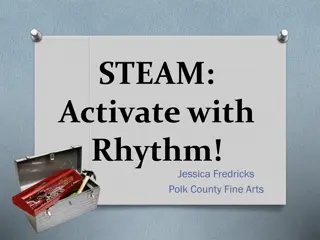Enhancing Mental Health and Happiness Through Understanding Brain Function
Explore the importance of promoting independence in children for their future success, happiness, and mental health. Discover how brain function impacts our responses to stress and learn ways parents can support their children in developing healthy coping mechanisms and brain regulation.
Uploaded on Oct 06, 2024 | 2 Views
Download Presentation

Please find below an Image/Link to download the presentation.
The content on the website is provided AS IS for your information and personal use only. It may not be sold, licensed, or shared on other websites without obtaining consent from the author.If you encounter any issues during the download, it is possible that the publisher has removed the file from their server.
You are allowed to download the files provided on this website for personal or commercial use, subject to the condition that they are used lawfully. All files are the property of their respective owners.
The content on the website is provided AS IS for your information and personal use only. It may not be sold, licensed, or shared on other websites without obtaining consent from the author.
E N D
Presentation Transcript
Putting the Health in Mental Health Michelle Cassidy Mental Health Lead May 2016
All Kids Need to Experience and Practice Independence Autonomy Control **makes sense given we are to release them to the world eventually, otherwise they would be dependent forever which would be dangerous for them in the world
How do we help them on their path towards becoming adults? What does it mean to promote their mental health and happiness?
Happiness..Elisha Goldstein Eudemonic Happiness: meaning purpose connection
The Brains Job Survival
Designed to keep our body in balance Our body craves homeostasis The brain supports adaptive functioning It is hardwired to protect us
Why is this important? Flight, Fight, or Freeze
A Helpful Brain Model Dr. Daniel Siegel
What happens in the body..why traditional ways of responding don t work Hippocampus attuned to threat Pre frontal cortex is shut down, reasoning is not possible Organs divert energy to survival needs Hearing shifts to attune to low frequency sounds only
How can we as parents help?
Changing the Brain We need our brain to have the alarm system, we wouldn t want to turn if off BUT higher level cortical functions help us moderate it Plasticityallows us to strengthen how the brain regulates
7 Secrets of Highly Happy Children Adapted from: Katie Hurley,Huffington Post
Eat on Time (and connect as a family)
Family Mealtimes 1. Schedule them if you have to 2. No technology, including answering the phone 3. Structure the conversation, must be positive 4. Devote one meal month to each family member (choice of meal, pick the positive conversation starter, and 1 affirmation)**identity development
Consistent Sleep
Disregulated Sleep 2 types of sleep: Restorative sleep Non-restorative sleep Large increase in children, youth and adults getting primarily non restorative sleep 3 primary factors: Lack of physical activity Blue Light Stress/Anxiety
Bedtime Routine 1. Forgiveness 2. Being grateful: thanking people for the things they have brought into your life 3. Structured Relaxation E.g. worried about homework What are you struggling with? What do you want to feel tonight? e.g. safety, peace Body Scan for Sleep Progressive Muscle Relaxation 4-7-8 Breathing
Play without Instructions
Get the body moving (full range of motion activities, tension and release) Get outside~ Nature
Allowed to Express Emotions
Brain Confusion Fear vs. Anxiety
Support Helping them Regulate Emotions not Deny them Begins with SELF AWARENESS What does it feel like when you feel icky or anxious ? Spiders crawling up arms knots in stomach etc. Label emotions when speaking to younger children Teach them about flipping their lid
BMW (@%#$^@...moan and whine) and then RESTORE
Heres what it looks like Just Breathe
Woohoo Elisha Goldstein Procedural Memory When making a mistake, send a message to the brain that this is okay it is just learning F-first A-attempt I-in L-learning
Make Choices (control, autonomy, independence)
Choose : Whats your thing? Each member of the family What is the number one thing that, if I started doing it, would have the biggest positive impact on my life? (on their life?)
Choose the FOCUS of our thoughts and behaviour Gratitude lists Values anchor: connect with 3 things you deeply love Joy list Calm, AOK, Gratitude
Choose to be in the moment Mindfulness Through their Eyes
Feel Heard (and Understood)
As a parent are you mindfully aware?... Checking in . Is your mind where your body is?
Understanding Key to the relationship Who they are as a person? Observe them just watch e.g. Introvert/Extrovert, HSP, thrive in chaos or peace
Experience Unconditional Love
Unconditional love From YOU but also themselves
Self Compassion Not about judging ourselves positively, but a way of relating to ourselves kindly, embracing ourselves lovingly flaws and all
If the day ever came when we were able to accept ourselves and our children exactly as we are and they are, then, I believe we would have come to an understanding of what "good parenting" means. Fred Rogers
Places to start.. Family Doctor Child s teacher/school Flyers Parent s for Children s Mental Health (PCMH) Mental Health Navigator (age 13-24 yrs.)
Resources Websites: Parents for Children's Mental Health Anxiety BC Anxiety BC Parent Toolkit Mind Your Mind Books: Building Emotional Intelligence (Linda Lantieri) Flourish (Dr. Seligman) The Mindful Child (Susan Kaiser Greenland) Brainstorm: The Power and Purpose of the Teenage Brain (Daniel Siegal) The Highly Sensitive Child: Helping Our Children Thrive When the World Overwhelms Them (Elaine Aron) Keys to Parenting Your Anxious Child, (Dr. Katharina Manassis) Worried No More, Second Edition: Help and Hope for Anxious Children (Aureen Wagner) Freeing Your Child From Anxiety, (Tamar Chansky) Helping Your Anxious Child (Ronald M. Rapee)
